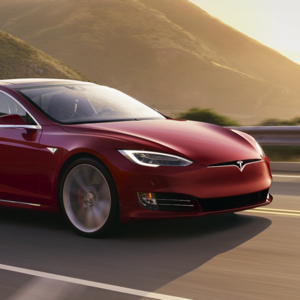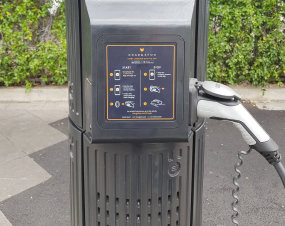As of the end of January 2021, Tesla’s market capitalization is hovering around $750 billion USD on the Nasdaq. TSLA’s 800% ascent in the past year has seen them catapult past the world’s largest, longest-running and most prestigious automakers. Reddit user jcceagle documented the ascent beautifully on the 6th of January, by which date the TSLA stock’s $691B market cap had just exceeded that of their top 10 competitors combined.
[OC] Tesla is now bigger (in market cap) than the next 10 biggest automakers. I’ve compressed its rise over the last two years in a minute. Enjoy! from r/dataisbeautiful
This imposing rise is particularly impressive given that Tesla have only been publicly listed since 2010 — the first US automaker to do so in over 50 years — during which time their shares trended around the $4-to-5 dollar mark, only breaking $10 in 2013 as the Model S started appearing on American roads.
So should we expect another half-century before this happens again? Was Tesla an anomaly, or might there be room for another EV automaker to shed their ‘startup’ trainer wheels and compete with the legacy heavyweights? With hundreds of millions of dollars of investment and backing from one of those heavyweights, there might be another way.
Enter Rivian
There are plenty who’ve tried to make the transition from ambitious startup to genuine automaker in the past decade. NEO made waves in China but are yet to capture international buyers’ attention; Fisker tried and failed to beat Tesla to the punch with a sporty EV sedan in 2011; now Rivian are attempting to fill a new niche in the growing EV market with an electric SUV and ‘truck’ (i.e., big American ute) set to debut this year.
The R1T pick-up and R1S SUV have been in the works for several years of intermittent updates and delays but, as frustrating as that has been, the marketing of the as-yet untested models has certainly paid off. As of 2019 Rivian had received over $1.5 billion USD in funding, $700 million of which came courtesy of Ford. In 2020 they sealed a deal to deliver 100,000 delivery vans to Amazon — only 23,000 short of UPS’ entire global fleet. And this January — still without having shipped a single vehicle — Rivian concluded a further funding round to the tune of $2.65 billion USD.

Get ready for electric delivery vans
All this hype is very reminiscent of Tesla circa-2008 and leading outlets haven’t hesitated to make comparisons, or to pit Tesla and Rivian against one another.

Measuring up to the hype
As appealing as deals and dollars and magazine covers may be, they aren’t a substitute for cars on the road — which, once again, Rivian still does not have. Neither will the Tesla comparisons save them from the profound differences between the circumstances of their debut. Today’s EVs are sold by many more automakers and in many more configurations than the electric desert of 2008.
And the prices of those EVs have spread just as wide. At an advertised minimum of $67,500 USD (Australian prices TBD, but expect them to be extravagant), the R1T & R1S are set to become the latest in an already long line of luxury EVs. The customers they’re competing for have plenty of other options to choose from — far more so than in 2008.
But Rivian might rebut this point with a crucial caveat of their own: the R1T might be the first electric pick-up/ute/truck ever sold to US customers, with deliveries set to start in June this year. Tesla’s much-hyped Cybertruck is slated for “late 2021”, and both companies have a history of delaying releases, so it’s a toss-up on which will land first.
Regardless, the R1T looks much more like an archetypal ‘truck’ than the hard lines and bare steel of the Cybertruck, and Rivian are betting that will get them across the line in an extremely popular segment. The US’ 3 top-selling vehicle models (and Australia’s top 2) are pick-ups/utes.

Notice also that the next best-selling vehicles on those best-selling vehicle lists are SUVs like the R1S. And, to Rivian’s benefit, this is also a segment that customers are used to shelling out for — particularly in Australia. The ever-popular Toyota LandCruiser sells for between $60,000 and $140,000, so even with an inevitably hefty LCT stamp the R1S should land at a sum that Aussie SUV buyers are willing to pay. And potentially cheaper than the Tesla Model X.
But, of course, this all hinges on Rivian delivering on the prices and features and availability that they’ve so aggressively marketed. If they do, there might be a piece of Tesla’s Nasdaq pie for them to carve away. If not, they could very easily go the way of Fisker and the many unsuccessful auto-startups before them.
It’s a minefield out there for budding electric automakers. The leviathons of Toyota and GM and Volkswagen have had a few years to change course toward the inevitable EV seachange and the first-mover advantage has been exhausted by Tesla.
And if Rivian can’t do it, if the billions of dollars and Ford backing and immense commercial orders aren’t enough, then perhaps there really aren’t any more seats at the EV table.




